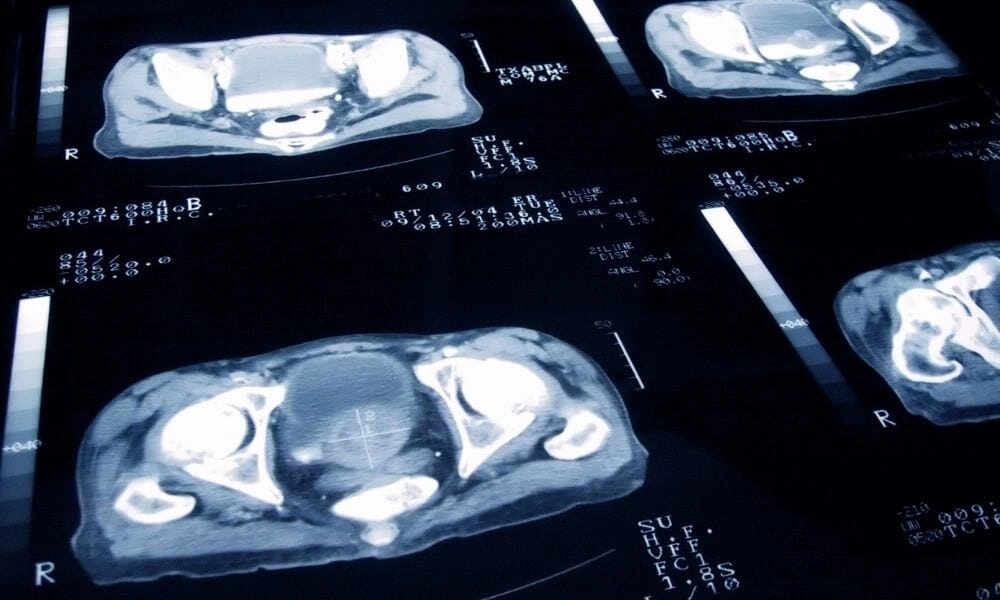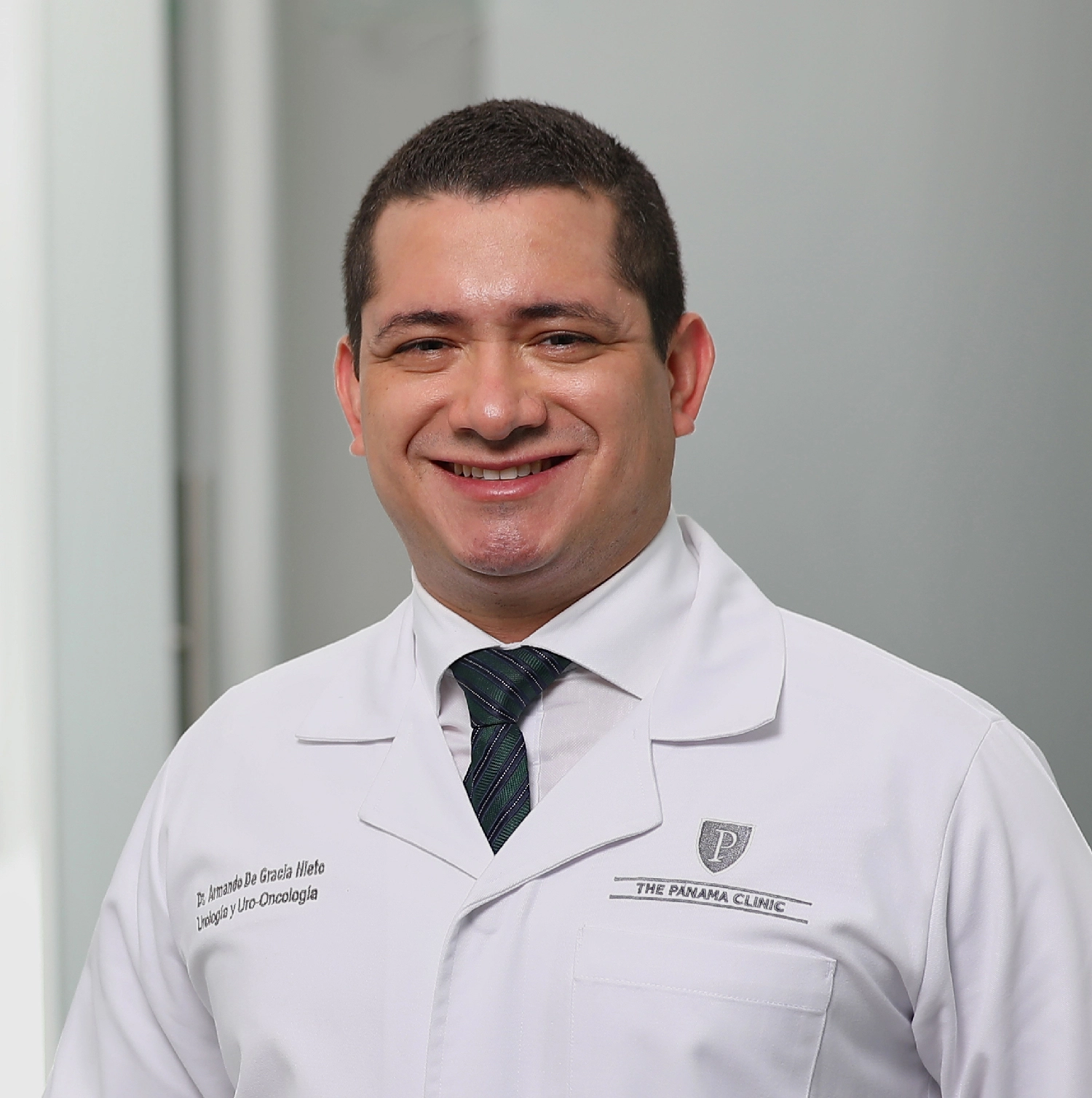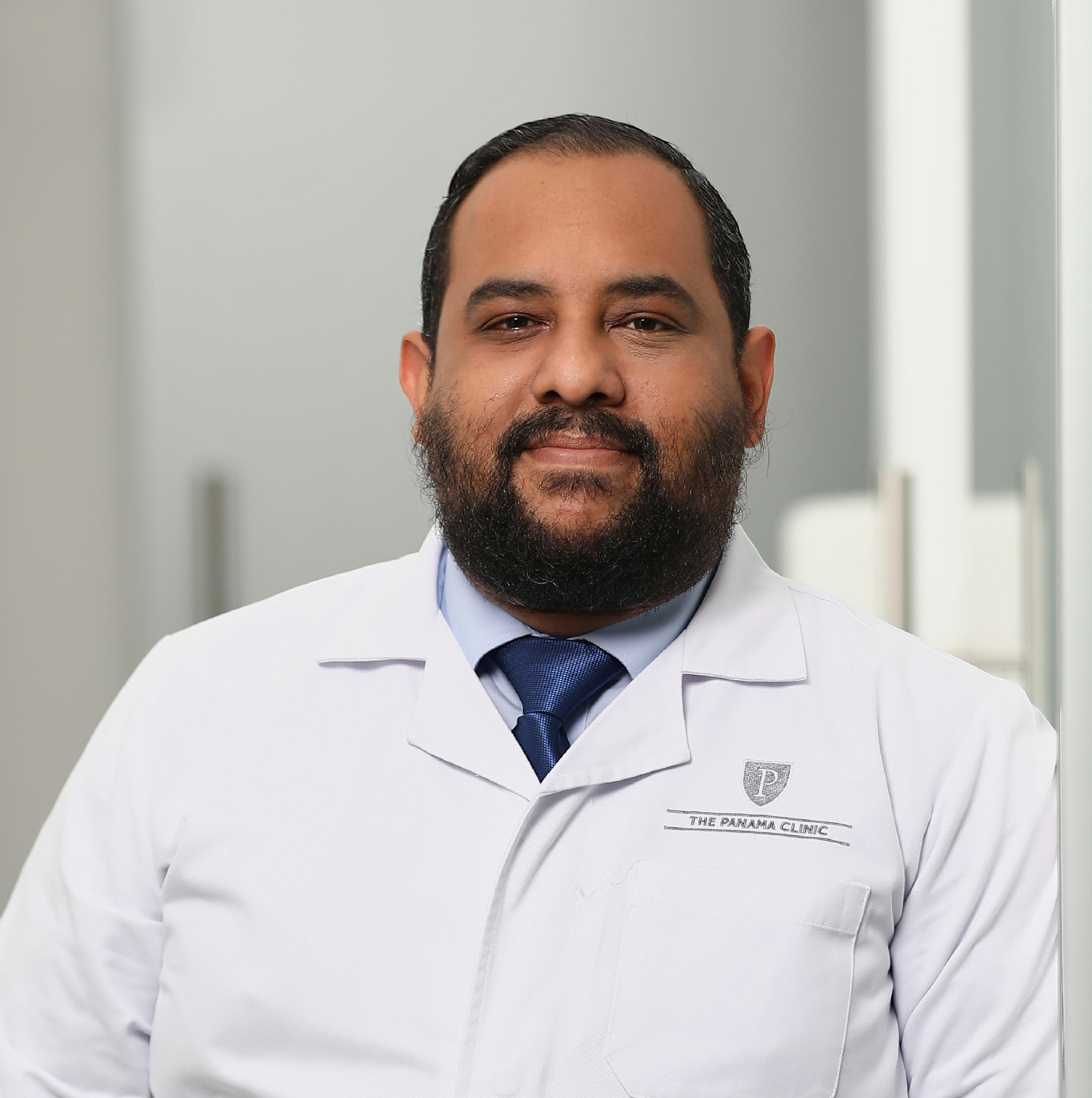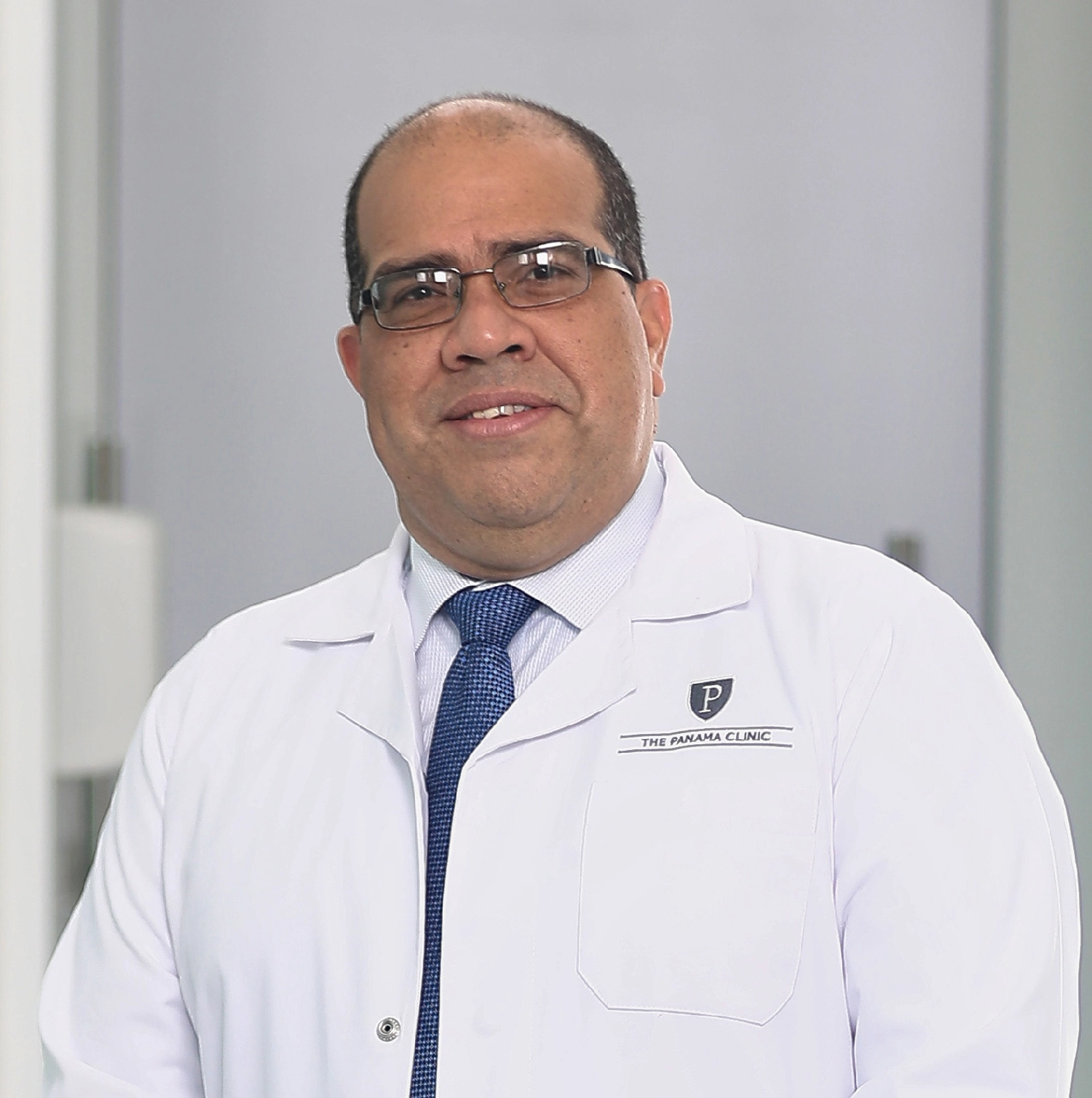Cáncer de Próstata
Es el tipo de cáncer más frecuente en hombres entre su edad media y avanzada. Al envejecer, la próstata agranda su tamaño lo que aumenta el porcentaje de incidencia de cáncer con el pasar del tiempo. Encuentre en Panama Cancer Clinic las soluciones médicas más efectivas para su caso.
Detecta a tiempo el cáncer de Próstata
Nos caracterizamos por contar con un equipo multidisciplinario que se encarga de dar apoyo al paciente desde que ingresa a la clínica e inicia los pasos de detección y diagnóstico, hasta que transita los duros ciclos de tratamiento, cirugía y recuperación tanto física como emocional.

El cáncer de próstata es el de mayor incidencia y mortalidad entre los hombres en Latinoamérica; sin embargo, no siempre tiene desenlaces fatalistas. 1 de cada 5 casos terminan causando la muerte al paciente, por lo que identificar a tiempo los signos del cáncer de próstata puede marcar la diferencia.

Si el cáncer de próstata es detectado a tiempo las probabilidades de curabilidad pueden incrementarse en un 90%.

Tratamiento
En Panama Cancer Clinic usted contará con un plan de acción con el mejor tratamiento para cáncer de próstata, ya sea cirugía, radioterapia o terapias dirigidas.

Bienestar Integral
Mantener una actitud positiva y recibir apoyo emocional puede mejorar la respuesta al tratamiento y facilitar la recuperación.
El Especialista
El Uro-oncólogo se especializa en cáncer de próstata y es el encargado de determinar el tratamiento más adecuado según el estadio de la enfermedad.
¿Qué es el cáncer de próstata?
El cáncer de próstata es un tipo de cáncer que se desarrolla en la glándula prostática, una pequeña estructura con forma de nuez ubicada debajo de la vejiga en los hombres. Su función principal es producir el líquido seminal, que nutre y transporta los espermatozoides.
Es uno de los cánceres más comunes en hombres, y su comportamiento puede variar significativamente. En muchos casos, crece de forma lenta y permanece localizado en la próstata sin representar un riesgo inmediato. Sin embargo, existen tipos más agresivos, que pueden expandirse rápidamente a otros órganos si no se detectan y tratan a tiempo.
El diagnóstico temprano del cáncer de próstata es clave para aumentar las posibilidades de un tratamiento exitoso. Cuando se detecta en sus primeras etapas, antes de que se propague, las opciones de tratamiento son más efectivas y pueden ofrecer mejores resultados en términos de control y recuperación.
Tipos de cáncer de próstata
La gran mayoría de los cánceres de próstata provienen de la familia de los adenocarcinomas, este tipo de cáncer evoluciona partiendo principalmente de las células glandulares encargadas de producir el líquido prostático. Sin embargo, existen otros tipos que aunque son muy invasivos rara vez aparecen, entre ellos:
Sarcomas.
Carcinomas de células transicionales.
Carcinoma prostático de células pequeñas.
Síntomas del cáncer de próstata
El cáncer de próstata es muy común entre los hombres. Afecta a uno de cada siete. La mayoría se descubre a tiempo gracias a las pruebas.
Los síntomas del cáncer de próstata pueden pasar desapercibidos en las primeras etapas, lo que hace aún más importante la realización de chequeos regulares. Esto es más importante a medida que los hombres envejecen.
El análisis de antígeno prostático específico (PSA) ayuda a detectar cáncer temprano. Pero también puede mostrar resultados altos por otras causas. Las pruebas de PSA y el examen digital del recto son clave para un diagnóstico correcto.
El riesgo de cáncer de próstata crece con la edad. Es más común en hombres mayores de 50 años. También aumenta si hay antecedentes familiares de cáncer de próstata o mama. Por eso, es vital hacer chequeos regulares para un diagnóstico temprano y tratamiento efectivo.
Signos del cáncer de próstata
En fases tempranas, los signos del cáncer de próstata suelen pasar desapercibidos o confundirse con afecciones benignas. Pero a medida que la enfermedad progresa, comienzan a aparecer síntomas más claros, como dificultad al orinar o sangre en la orina. De hecho, se estima que alrededor del 34 % de los hombres son diagnosticados cuando ya presentan manifestaciones visibles.
Cambios en la frecuencia urinaria
Una de las primeras señales es orinar más a menudo, especialmente de noche. Esto ocurre porque el tumor presiona la uretra. También, un flujo urinario lento puede indicar un problema.
Dificultad para iniciar la micción
Los hombres con cáncer pueden tener dificultades para vaciar la vejiga. Esto se debe a que el tumor bloquea la uretra. En algunos casos, el flujo de orina puede ser débil o interrumpido.
Dolor durante la micción
Con el avance del cáncer, puede sentir dolor o ardor al orinar. Esto se debe a la irritación de la uretra y la vejiga. Es crucial saber que estos síntomas también pueden ser de otras condiciones, como la HPB o infecciones del tracto urinario.
Sangre en la orina o en el semen
La sangre en la orina o semen es un síntoma preocupante. Si lo ve, debe ir al médico sin demora. Aunque no siempre es cáncer, no se debe ignorar.
Pérdida de peso inexplicada
La pérdida de peso sin razón y la fatiga son señales de cáncer avanzado. El cuerpo lucha contra el cáncer, lo que causa pérdida de peso y cansancio.
Si nota cambios como estos, busque atención médica inmediata. El cáncer de próstata y sus síntomas son manejables si se detectan a tiempo, así que esté atento a su cuerpo y consulte con su médico ante cualquier duda.
Un diagnóstico temprano no solo mejora el pronóstico, también abre la puerta a más alternativas terapéuticas. Cuando se trata de cáncer de próstata, los síntomas y el tratamiento varían según el caso, pero actuar a tiempo marca la diferencia. La supervivencia a 5 años para los diagnósticos localizados supera el 98 %.
Contáctanos
Agenda una cita
Solicite una consulta
Tratamientos del cáncer de próstata
Los síntomas y el tratamiento del cáncer de próstata dependen en gran medida de cómo se comporta la enfermedad. Algunos casos crecen lentamente y permanecen localizados, mientras que otros progresan con mayor rapidez y requieren un enfoque más agresivo.
Por eso, una vez confirmado el diagnóstico, el paso siguiente es definir la estrategia terapéutica. Esta decisión depende de múltiples factores: el tipo de cáncer, su agresividad, el estado general del paciente y si la enfermedad se ha diseminado. Con base en estos elementos, el médico propondrá el tratamiento más adecuado y explicará claramente sus beneficios y posibles efectos.
Vigilancia activa:
Cuando el cáncer de próstata apenas comienza es probable que no amerite tratamiento inmediato, pero tampoco debe descuidarse, el monitoreo constante con análisis de sangre, tactos o biopsias, es indispensable para dar seguimiento a la actividad del cáncer.
Cirugía:
La prostatectomía radical es el procedimiento donde se extirpa la próstata, parte del tejido circundante y para “más seguridad” algunos ganglios. La cirugía puede darse de dos formas, por laparoscopia a través de pequeñas incisiones o por operación retropúbica (abierta).
Radioterapia:
Este tratamiento emplea radiaciones con rayos x de amplia potencia para destruir las células cancerígenas.
Terapia hormonal:
Con este método se busca frenar la producción de testosterona para que las células no puedan alimentarse de esta hormona, al no contar con este vital suministro las células malignas morirán o reducirán su crecimiento.
Quimioterapia:
Medicamentos enfocados en eliminar las células de crecimiento avanzado, este puede ser administrado por pastillas, vía intravenosa o ambas opciones de forma conjunta.
Tratamientos alternativos:
El tratamiento para el cáncer de próstata no es único; varía según el tipo de cáncer, su agresividad y el estado general del paciente. En todos los casos, el objetivo es adaptar las terapias —como inmunoterapia, medicamentos dirigidos o técnicas ablativas— para lograr los mejores resultados posibles.


Complicaciones
Tanto el cáncer de próstata como los tratamientos que se administran para su cura pueden dejar secuelas inevitables en el paciente, entre las más comunes se encuentran:
Incontinencia urinaria:
Esta incomodidad puede ser resuelta por su médico con tratamientos adicionales.
Disfunción eréctil:
Aunque los tratamientos hormonales o por radiación pueden ser contraproducentes para la virilidad masculina, existen muchos otros métodos que pueden implementarse exitosamente para la disfunción eréctil.
Metástasis:
Si las medidas para detener el cáncer no son tomadas a tiempo, el paciente corre el riesgo de que pueda diseminarse a órganos cercanos, al sistema linfático o probablemente llegar hasta los huesos.
Recibir un diagnóstico positivo de cáncer de próstata puede generar un fuerte impacto emocional. Es normal sentir miedo o incertidumbre al principio, pero mantenerse informado ayuda a recuperar el control. Estar atento a los síntomas del cáncer de próstata y comprender cómo progresa la enfermedad permite tomar decisiones más acertadas. Es importante recopilar información real durante las consultas médicas y conversar abiertamente con el oncólogo.
Preguntas frecuentes
La edad es uno de los factores más importantes, especialmente después de los 50 años. Tener familiares cercanos con cáncer de próstata también puede aumentar el riesgo.
Además, una dieta rica en grasas animales, carnes rojas y lácteos se ha asociado con mayor probabilidad de desarrollar la enfermedad.
Cuando el cáncer se detecta en etapas tempranas y localizadas, la tasa de supervivencia a cinco años supera el 99 %. En estos casos, muchos pacientes logran controlar la enfermedad o incluso curarse completamente.
Si el cáncer ya está avanzado o presenta metástasis, la esperanza de vida se reduce, aunque los tratamientos modernos pueden extenderse significativamente. Cuando el cáncer de próstata ya se ha extendido a otras partes del cuerpo, las personas suelen vivir en promedio entre 5 y 6 años. Este tiempo puede variar según cómo funcione el tratamiento en cada caso.
Los efectos secundarios más comunes son la disfunción eréctil y la incontinencia urinaria, ya que los tratamientos pueden afectar los nervios cercanos a la próstata.
También pueden presentarse fatiga, cambios en la eyaculación o irritación al orinar, sobre todo con radioterapia u hormonoterapia. La mayoría de estos efectos se pueden controlar con el apoyo médico adecuado.
El cáncer de próstata se clasifica según qué tan rápido crecen las células y hasta dónde se ha extendido. El grado va del 1 al 5: los números bajos indican un cáncer de crecimiento lento, mientras que los altos muestran uno más agresivo.
La etapa indica si el cáncer está solo en la próstata o si ya llegó a otras partes del cuerpo. Con esta información, el médico puede elegir el tratamiento más adecuado y predecir cómo puede avanzar la enfermedad.









